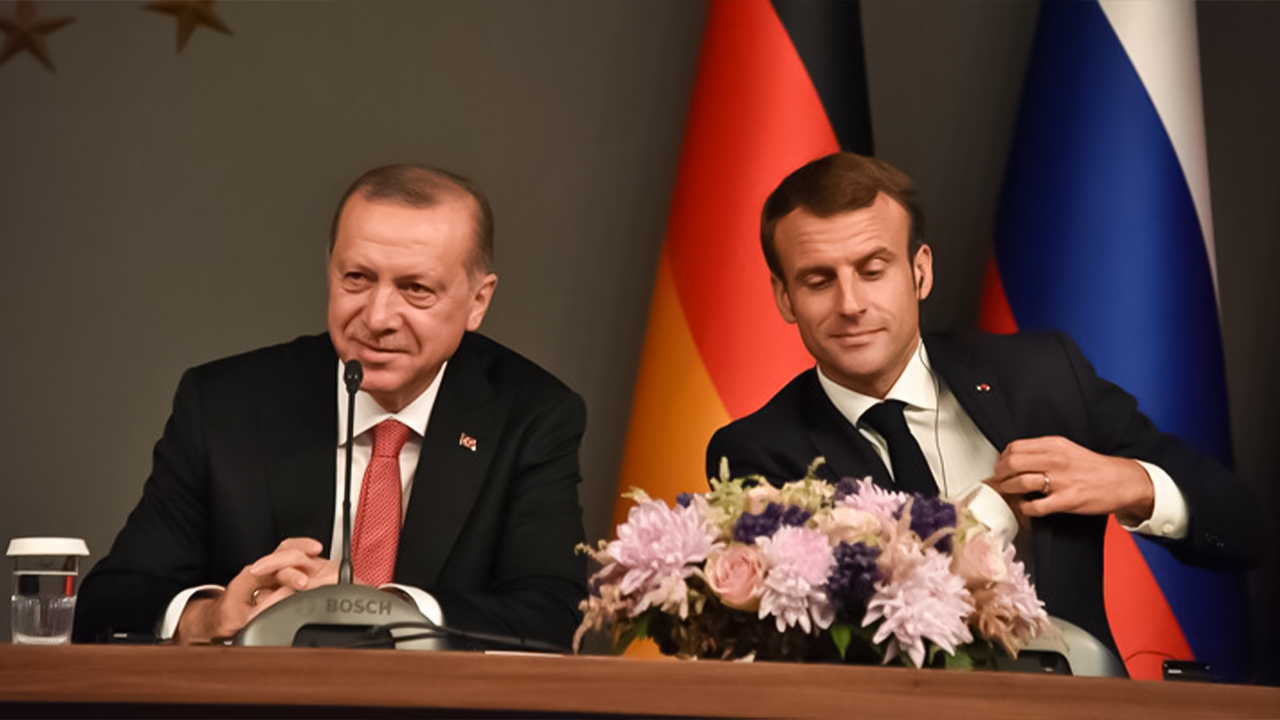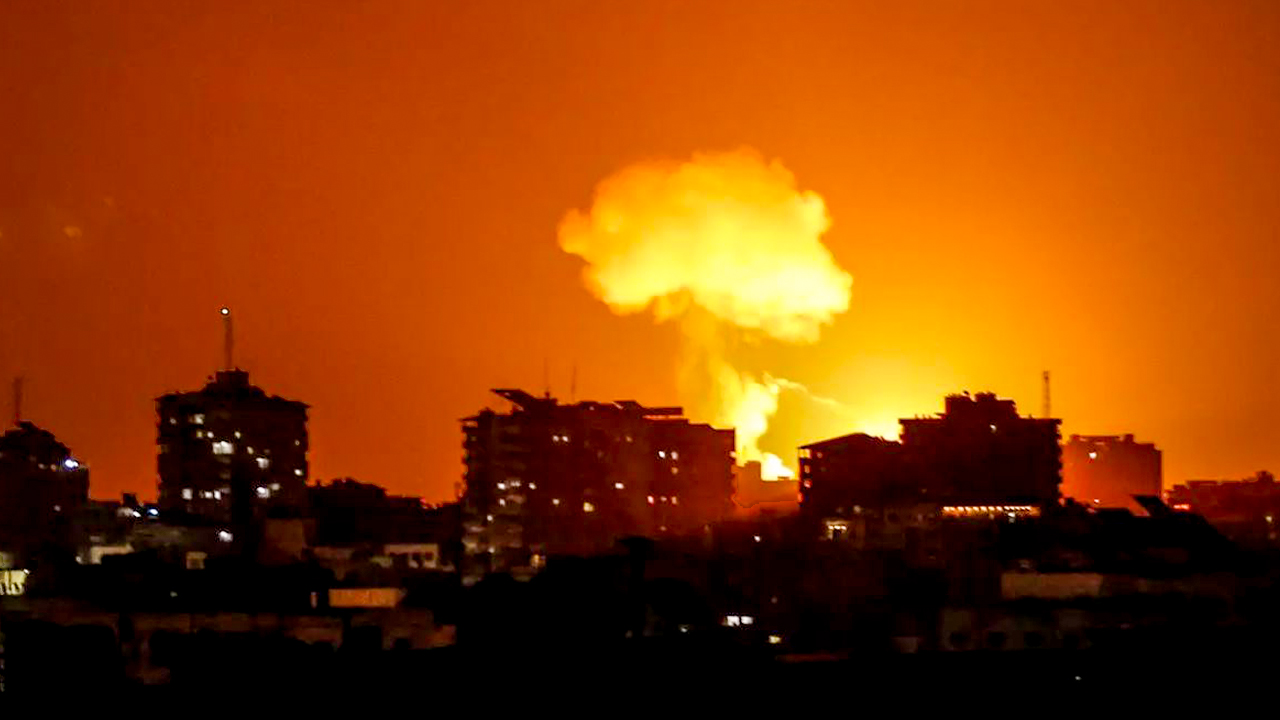Matt Broomfield
French President Emmanuel Macron this week made the unexpected proposition that the International Coalition to Defeat ISIS, led by the USA and supported by over 80 national governments, should form the blueprint for a new anti-Hamas coalition backing Israel in its war on the Gaza Strip. While practical and geopolitical considerations mean such a program is unlikely ever to get off the ground, the proposal is suggestive of broader issues in the West’s policy toward the Middle East. As the aftermath of the ISIS Coalition’s seemingly-successful campaign against ISIS shows, Western policy remains short-sighted, cynical, and disinterested in pursuing the broader reforms needed to ensure lasting peace and stability in the region.
The fact key Hamas backers Qatar and Turkey are nominal participants in the US-led Coalition to Defeat ISIS makes it immediately unlikely that the Coalition mandate could be extended to targeting Hamas, the group whose militant wing killed over 1,400 Israelis in an unprecedented attack on 7 October. Israel has since killed over 7,000 Palestinians in Gaza, including 3,000 children, in what it describes as a military operation intended to eradicate the Islamist group which has ruled the besieged Gaza Strip since 2007.

As these shocking casualty figures suggest, no military operation can hope to root out Hamas. On the contrary, bombing campaigns will only breed further desperate acts of resistance, like that we saw on 7 October. Here, supporters of Western military action against Hamas might well point to the successes of the anti-ISIS Coalition. ISIS once ruled millions across swathes of Iraq and Syria, but by March 2019 were totally eradicated as a territorial force, reduced once more to an underground insurgency hiding out in the desert hinterland.
But this conflict was very different. Crucially, ISIS were perceived as unwanted occupiers by many in the communities they ruled, whereas Hamas emerged among Palestinians and have managed to secure an effective monopoly on political organisation and armed resistance in Gaza, their violent repression of Gazan’s civil rights notwithstanding. Coalition bombing alone could never have eradicated ISIS: that took the courageous participation and sacrifices of a multi-ethnic indigenous force, spearheaded by the Kurds but joined by their fellow Sunni Muslim Arabs to drive ISIS out of their communities. No such collaboration would be possible in Gaza, where it’s already clear the occupying Israeli forces intend to brutalise the civilian population to such an extent that the cycle of violence is all but guaranteed to spin out of control.

And nor has the West proven able to take the steps necessary to entrench those battlefield victories against ISIS. Albeit the US-led bombing campaign helped to root ISIS out from their urban strongholds, it’s the tentative social contract between Kurds, Arabs and regional minorities which has prevented ISIS from immediately regaining territory and support. Little-recognised and little-heralded, the Kurdish-led administration has recognised the necessity of overcoming inter-ethnic grievance, as exemplified by the steady re-emergence of civic life in former ISIS strongholds like Raqqa and Manbij, underpinned by amnesties and the release of ISIS-linked families back to their home communities. The Kurds were recognised worldwide for their losses on the battlefield against ISIS: but foreswearing what many might view as their natural right to vengeance marks a yet more profound form of sacrifice.
This slow, painful process has seen many setbacks and challenges, as typified by recent civil unrest in the Deir-ez-Zor region where ISIS held their last stand, and which still faces severe challenges in moving beyond a security paradigm to build genuine community consensus under the multi-ethnic administration. And it is taking place with little support from the USA or the other Coalition powers.
The USA retains its foothold in the region, but essentially in order to pursue its own geostrategic objectives to serve as a bulwark against Iran, rather than out of any desire to guarantee the region’s long-term security. Reconstruction funding has been limited, no states have been willing to listen to locals’ pleas for international justice mechanisms to expatriate thousands of foreign ISIS members and secure justice for the terror group’s victims, and most seriously of all, then-nominal Coalition member Turkey has been able to continue its bombing campaign against the region unabated.
If the Coalition were serious in its anti-terror mission, bringing an end to Turkey’s destructive bombing campaigns (which targeted 175 key pieces of humanitarian infrastructure over the weekend of the Hamas attacks) would mark a first step. Turkey’s bombing campaigns against Syria have brought only misery, chaos and the obliteration of humanitarian infrastructure, while allowing ISIS detainees to escape from camps in their hundreds, and recently forcing the region to bring an end to its small-scale rehabilitation programmes for young men raised under ISIS’ spell.
Any genuine anti-ISIS or anti-Hamas coalition would have to follow broadly similar paths in fostering inter-community dialogue, reconstruction, and growth amid conditions of internationally-mandated peace. This is what a genuinely productive anti-terror policy would look like. But it’s clear Macron’s call was only for more of the same: Western power-projection into the Middle East in line with US foreign policy objectives, backed by massive military power, and yet unable to foster genuine and enduring peace. Whether or not Macron’s unlikely proposition becomes reality, Western policy toward the region will remain marked by the same self-serving, short-sighted approach.
Matt Broomfield is a freelance journalist, poet and activist. He writes for VICE, Medya News, the New Statesman and the New Arab; his prose has been published by The Mays, Anti-Heroin Chic and Plenitude; and his poetry by the National Poetry Society, the Independent, and Bare Fiction. His work was displayed across London by Poetry on the Underground, and he is a Foyle Young Poet of the Year.










